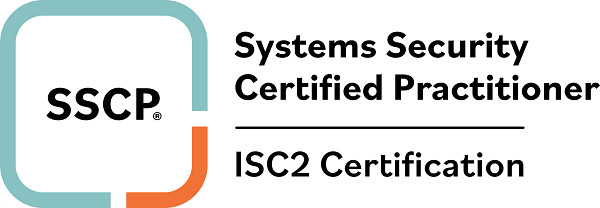Systems Security Certified Practitioner (SSCP) - ISC²
Course Overview

The Systems Security Certified Practitioner (SSCP) certification by ISC² is a globally recognized credential for IT professionals tasked with implementing, monitoring, and managing IT infrastructure using best security practices, policies, and procedures. It covers foundational and advanced concepts in security, including access controls, incident response, cryptography, and network security.
This course is designed for individuals seeking to establish or advance their careers in IT security. The SSCP certification validates technical expertise and practical skills required for operational IT security roles.
What you will learn:
- Implementing and managing access controls.
- Security operations and administration best practices.
- Cryptographic techniques to protect sensitive information.
- Risk identification and mitigation strategies.
- Incident response and recovery processes.
- Network and communications security principles.
- Basics of malware analysis and prevention techniques.
- Understanding and applying compliance and auditing standards.
Pre-requisite
- At least one year of cumulative work experience in one or more of the seven SSCP domains.
- A degree in cybersecurity or a related field can substitute for the experience requirement.
Benefits
- Foundational Security Skills: Gain comprehensive knowledge of IT security principles.
- Global Recognition: SSCP is an industry-respected certification, highly valued worldwide.
- Career Growth: Prepare for roles such as Security Analyst, Systems Administrator, or Network Administrator.
- Hands-On Knowledge: Apply security practices and principles in real-world scenarios.
- Professional Network: Become part of ISC²’s global community of security professionals.
Who Should Take This Course?
- IT Professionals: Individuals managing or securing IT infrastructure.
- Network and Systems Administrators: Those focusing on operational security.
- Security Analysts: Professionals working to safeguard organizational systems and data.
- Help Desk Analysts: IT staff aiming to transition into security-focused roles.
- Aspiring Security Specialists: Beginners looking to establish a career in cybersecurity.
